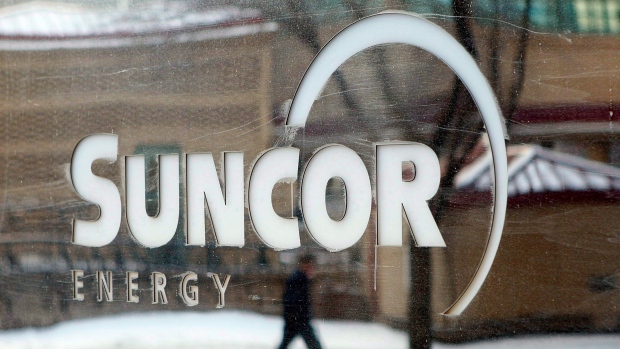Jul 22, 2016
Suncor vows to slash emissions per barrel by 30%: 'Doing nothing is not an option'
, The Globe and Mail

Oil-sands giant Suncor Energy Inc. has for the first time set a specific goal for greenhouse gas reductions, and has pledged to cut the emissions intensity of its oil and petroleum production by 30 per cent by 2030.
“As we’ve navigated a prolonged period of low oil prices, we’ve had to be resilient and adaptable,” wrote Suncor chief executive officer Steve Williams. “We’ve also had to think hard about what our vision of a ‘triple bottom line’ really means in an era when our industry – and the world around us – is being called upon to address significant economic, social and environmental challenges.
“Suncor’s vision guides us on taking a long view on these challenges – one that extends well beyond the next quarterly or annual results – to one that considers our role in getting to a low carbon energy future,” he said. “Climate change is happening. Doing nothing is not an option.”
As the global push to reduce greenhouse gas emissions intensifies, Canada’s energy-intensive oil-sands production has faced greater scrutiny by environmentalists and investors alike. Suncor’s new pledge was released Thursday as part of the company’s annual sustainability report. The goal of reducing the “emission intensity” of operations refers not to an absolute decrease, but to the amount of carbon emissions per unit of economic output – meaning Suncor’s total GHG output could still rise as it produces more barrels of crude.
Suncor has set the baseline year as 2014, and said it will achieve its aim by introducing energy efficiency measures at its facilities, switching to lower-carbon fuels such as natural gas, developing new technologies for extracting and processing, and investing in co-generation and renewable energy.
The oil-sands producer has had a climate-change action plan for almost 20 years but this is the first time there has been a specific goal relative to GHGs.
Suncor is among a small group of oil-sands producers that have supported the Alberta government’s ambitious climate-change strategy – far less popular with other members of the province’s energy sector. The plan includes an economy-wide carbon tax starting next year, the phase out of coal-fired power plants and an annual 100-megatonne cap on oil-sands emissions.
Suncor also said Thursday it wants to strengthen its relationship with aboriginals through actions including a greater focus on hiring, retention and advancement of aboriginal employees. In addition, it said it wants to increase revenues to aboriginal businesses and communities through “mutually beneficial” marketing arrangements and procurements of materials and services.


